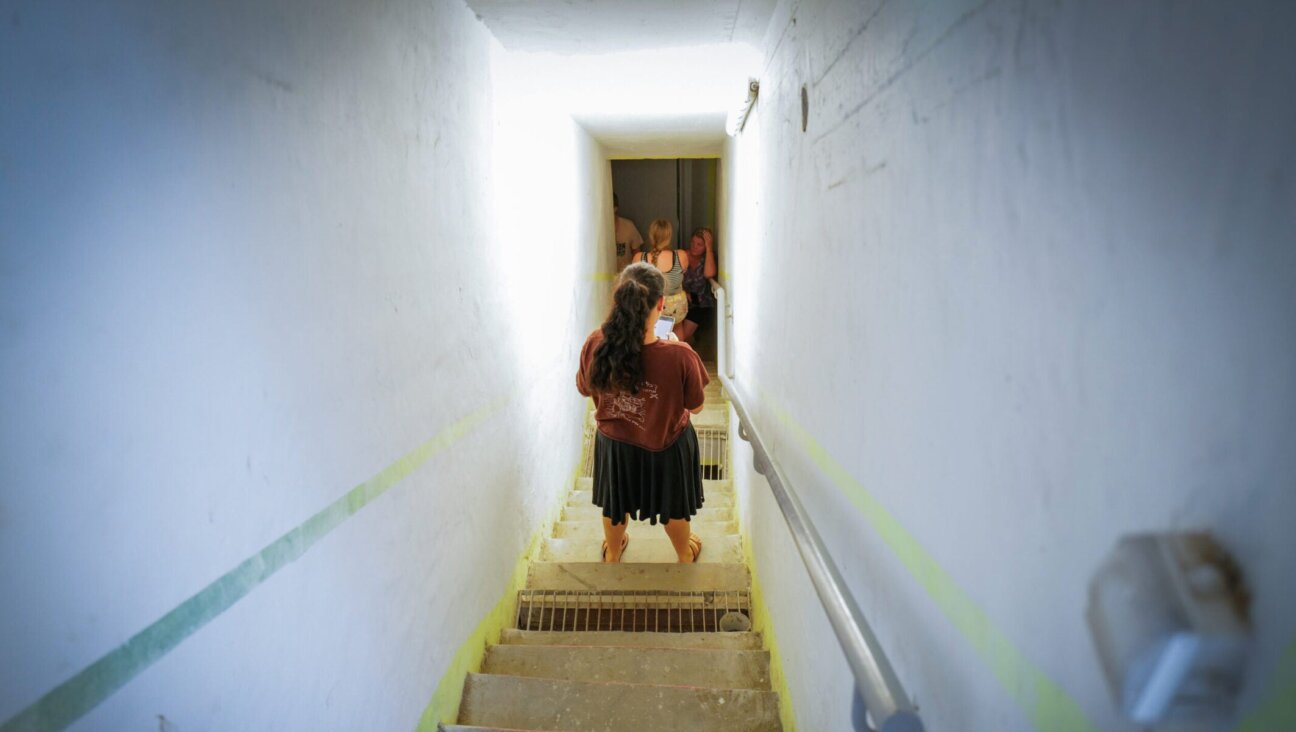More From Spy Chiefs: Palestine Conflict, Not Iran, Is Our Top Threat

Image by Getty Images
Yesterday I posted my translation of a Facebook post by Yuval Diskin, the former director of Israel’s Shin Bet internal security agency. He wrote that Israel’s security is threatened by a growing anger and frustration among the Palestinian public — and that the frustration is due in large measure to Israeli government policies. Among those policies: dismissing the Palestinians as a peace partner, ignoring their economic woes and continuing to build settlements on land the Palestinians claim as their future state.
Today Haaretz published two articles in English that elaborate on that thought. One is a new piece by Diskin, outlining what he describes as an achievable path to an Israeli-Palestinian peace settlement, via a four-way peace arrangement between Israel, the Palestinians, Jordan and Egypt.
The other is an account of a briefing by Mossad director Tamir Pardo, the current director of the Mossad intelligence agency, given on Thursday to a group of Israeli businessmen. As reported by Haaretz diplomatic correspondent Barak Ravid, Pardo told the gathering that the “biggest threat to Israel’s security is the conflict with the Palestinians and not Iran’s nuclear program.”
According to an attendee at the briefing, Pardo listed the most dangerous threats to Israel’s security as the “Palestinian issue” and the rise of the so-called Islamic State (formerly the Islamic State in Iraq and Syria) as a destabilizing terror base in the region. Pardo reportedly declined to include the Iranian nuclear project in his catalogue of most serious threats to Israel’s security or survival.
This isn’t the first time Pardo has downplayed the Iranian nuclear threat, in seeming contradiction to the views of his boss, Prime Minister Netanyahu. In December 2011 he said in a speech to an annual gathering of Israeli ambassadors that it was a “mistake” to describe Iran as an “existential threat” to Israel.
Pardo’s views at the time clearly echoed those of the immediate past heads of the Mossad, Shin Bet and Israel Defense Forces, Meir Dagan, Yuval Diskin and Gabi Ashkenazi, who had firmly opposed Netanyahu’s push to attack Iran. But where those three had kept their views under wraps while on the job, voicing them only as classified advice to Israel’s security cabinet, Pardo broke with custom by stating his dissent in a semi-public forum.
In April 2012 current IDF chief of staff Benny Gantz followed Pardo’s lead and took a similarly semi-veiled swipe at Netanyahu’s Iran views, telling Haaretz in an interview that he believed Iran’s leadership consists of “very rational people,” he didn’t believe they would decide to build a bomb and he thought the U.S.-led diplomatic effort on Iranian nukes was “bearing fruit.”
Here’s a quote from Pardo’s 2011 speech that appears in Ravid’s report today:
“What does an existential threat mean?” he asked. “Is Iran a threat to Israel? Obviously it is. But if one says that an Iranian nuclear bomb threatens the very existence of Israel, we can close shop and go elsewhere. This is not the situation — the term existential threat is bandied about too loosely.”
Although Pardo was careful not to criticize the government directly, his description of the Palestinian conflict as Israel’s most dangerous security threat dovetails with Diskin’s criticism of the government for behaving as though the status quo is sustainable and allowing tensions to build.

















